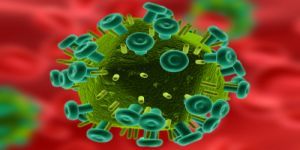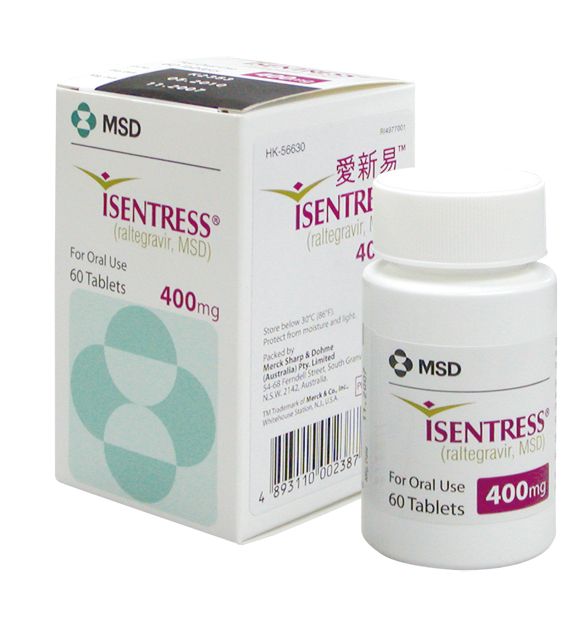Article
Long-Term Raltegravir Effective in HIV Patients with Drug Resistance, Past Virological Failure
Author(s):
Results of a pair of phase 3 placebo-controlled clinical studies conducted by a worldwide team of researchers have deemed Merck's Isentress (raltegravir) antiretroviral treatment safe, tolerable, and effective in multidrug-resistant HIV patients who are naïve to integrase inhibitors.

Results of a pair of phase 3 placebo-controlled clinical studies conducted by a worldwide team of researchers have deemed Merck’s Isentress (raltegravir) antiretroviral treatment safe, tolerable, and effective in the long term within multidrug-resistant HIV patients who are naïve to integrase inhibitors.
For their five-year BENCHMRK trials, Joseph J. Eron, MD, of the University of North Carolina at Chapel Hill, and researchers across North America, South America, Australia, and Europe enrolled 699 HIV patients with failed previous antiretroviral therapy and resistance to at least one drug in the nucleoside reverse transcriptase inhibitors, non-nucleoside reverse transcriptase inhibitors, and protease inhibitors classes of antiretroviral medications — meaning “many patients had few, if any, remaining treatment options at study entry,” according to the authors of the final results published in the July 2013 issue of The Lancet.
Within the study cohort, 462 patients were randomized to receive Isentress — an integrase strand transfer inhibitor currently FDA-approved for use in combination therapy of HIV-1 infection in previously untreated or treated patients — while 237 patients were assigned to placebo. Only 251 patients in the raltegravir group and 47 patients in the placebo group entered the open-label extension phase of the trials, while only 221 raltegravir patients and 44 placebo patients completed the entire 250-week BENCHMRK studies.
At weeks 156 and 250, the investigators assessed the proportion of patients in the Isentress and placebo groups with viral loads less than 400 copies per milliliter and viral loads less than 50 copies per milliliter, as well as the mean change in white blood cell (CD4 cell) count.
According to the researchers, “raltegravir was more efficacious than placebo over several baseline prognostic factors, including those that predict poor response to antiretroviral therapy — for example, high viral load, low CD4 cell count, and low phenotypic and genotypic sensitivity score” — at week 156. At week 240, viral load was less than 50 copies per milliliter in 42 percent of the patients initially assigned to raltegravir, while 45 percent had less than 400 copies per milliliter; additionally, the mean increase in CD4 cell count was 183 cells per microliter from baseline.

Reviewing the results between week 156 and week 240, viral loads remained at less than 50 copies per milliliter in 77 percent of the 251 patients from the raltegravir group, compared to 81 percent of the 47 patients from the placebo group, and mean CD4 cell count increased by 293 cells per microliter in raltegravir patients, compared to 267 cells per microliter in placebo patients.
Though a smaller percentage of patients in the raltegravir group had viral loads of less than 50 copies per milliliter and mean CD4 cell increases compared to those in the placebo group, the authors wrote “this pattern is not unexpected, because patients from the placebo group received raltegravir as a new active drug during the open-label post-virological failure phase, whereas those who had received raltegravir had already failed a raltegravir-containing regimen.”
At the final 5-year mark, the researchers noted nausea, headache, and diarrhea were the most commonly reported drug-related adverse reactions, though they occurred in similar proportions in the Isentress and placebo groups.
“Raltegravir with optimum background treatment has a favorable long-term efficacy and safety profile in integrase-inhibitor-naive patients with triple-class resistant HIV and virological failure on their previous antiretroviral therapy regimen,” the authors concluded. “Our results provide additional support for the conclusion that HIV integrase inhibitors are a beneficial addition for previously treated patients with virological failure, including those with limited treatment options.”
Merck & Co., which markets the antiretroviral agent, sponsored and funded both BENCHMRK studies.


